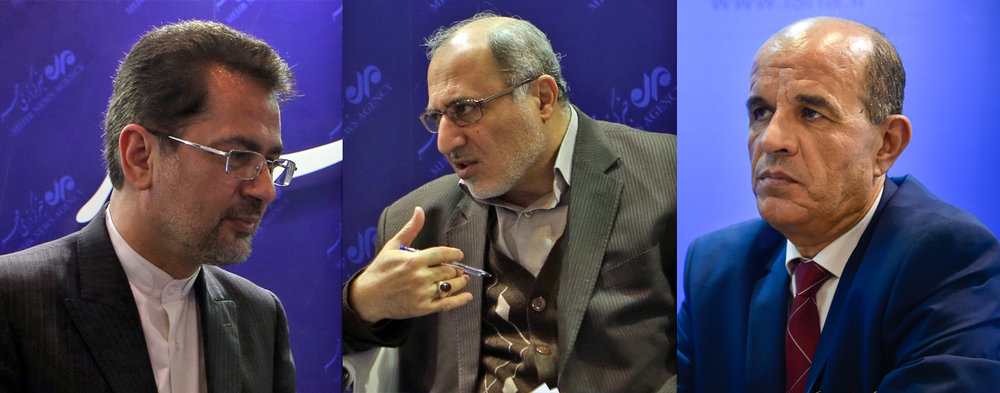Economic, political experts review impacts of JCPOA at Press Exhibition

On Saturday - the second day of the 22nd Press Exhibition – the Tehran Times sat with three national and international experts reviewing impacts of the implementation of the nuclear deal - known as the Joint Comprehensive Plan of Action (JCPOA) - on both the Iranian and the global economy.
'JCPOA beneficial to all Islamic, Arab countries'
The Tunisian academic and ournalist, regional reporter and analyst, and the Editor-in-Chief of “Assabah” daily, Kamal Ben Younes, admitted that all the Arab and Islamic countries can benefit from JCPOA as the Islamic Republic of Iran did.
Iran’s nuclear deal proved these countries that they can also open gateways to reach economic development, he said.
Arab and Islamic countries have now the chance to revive their economic relations with Iran, those that had been stopped due to the western-led international financial embargo on the Islamic Republic, he added.
“Before the embargo, Iran and Tunisia had an excellent partnership. Tunisia used to sell phosphate to Iran about ten years ago, before the financial embargo, while Iran exported cars to Tunisia. But when the French carmaker, Peugeot, stopped manufacturing cars in Iran, Tunisia’s imports of cars made in Iran also stopped,” he explained.
Now after JCPOA implementation those opportunities could be reintroduced. In recent weeks, Iran has restarted selling its cars to Tunisia and Iranian car manufacturers have set up their showrooms in the Tunisian city of Sousse,” he stated.
“In my opinion, there is no obstacle to re-commence trade and tourism relationship between the two countries. Both countries’ embassies, as far as I know, are now working on re-launching common economic ties and there is a mixed high commission formed by both sides’ ministries of economy,” he added.
‘U.S. sabotaging JCPOA’
The Head of Iran’s Innovation and Development Fund, Behzad Soltani, during his visit to the Tehran Times pavilion, asserted that JCPOA implementation has provided a chance for improvement of Iranian knowledge-based companies via making contracts with a large number of foreign companies who have applied to start businesses in Iran.
“The Iranian administration has recently enacted a proposal which obligates transfer of knowledge in all the contracts that are to be made in future with the foreign partners,” he said, “accordingly, when foreign companies express readiness to start operation in Iran, it is vital for them to pick up an Iranian partner.”
“There are 2,759 knowledge-based companies in Iran and that makes a huge market for foreigners,” he underlined.
As he further elaborated, since the implementation day, a number of foreign companies have shown tendency to cooperate with Iranian companies and transfer modern technology to our country. “Related negotiations have been made and even some of the related contracts have been written but they have been postponed to be signed in future due to the problems made by the U.S. government about the monetary transactions with the Islamic Republic,” he lamented.
‘Majlis, administration closely cooperate on JCPOA implementation’
The Spokesman of the Majlis (the Iranian parliament) Economic Affairs Committee, Hassan Hosseini-Shahroodi, said MPs are closely cooperating with the administration on JCPOA implementation.
During his visit to the Tehran Times pavilion, Hosseini-Shahroodi said that the legislators have ratified all regulations to boost foreign investments as well as all the related bills proposed by the government in this regard. He underlined that parliament members fully cooperate with the administration to reach its set targets.
HJ/MA/MG
Leave a Comment